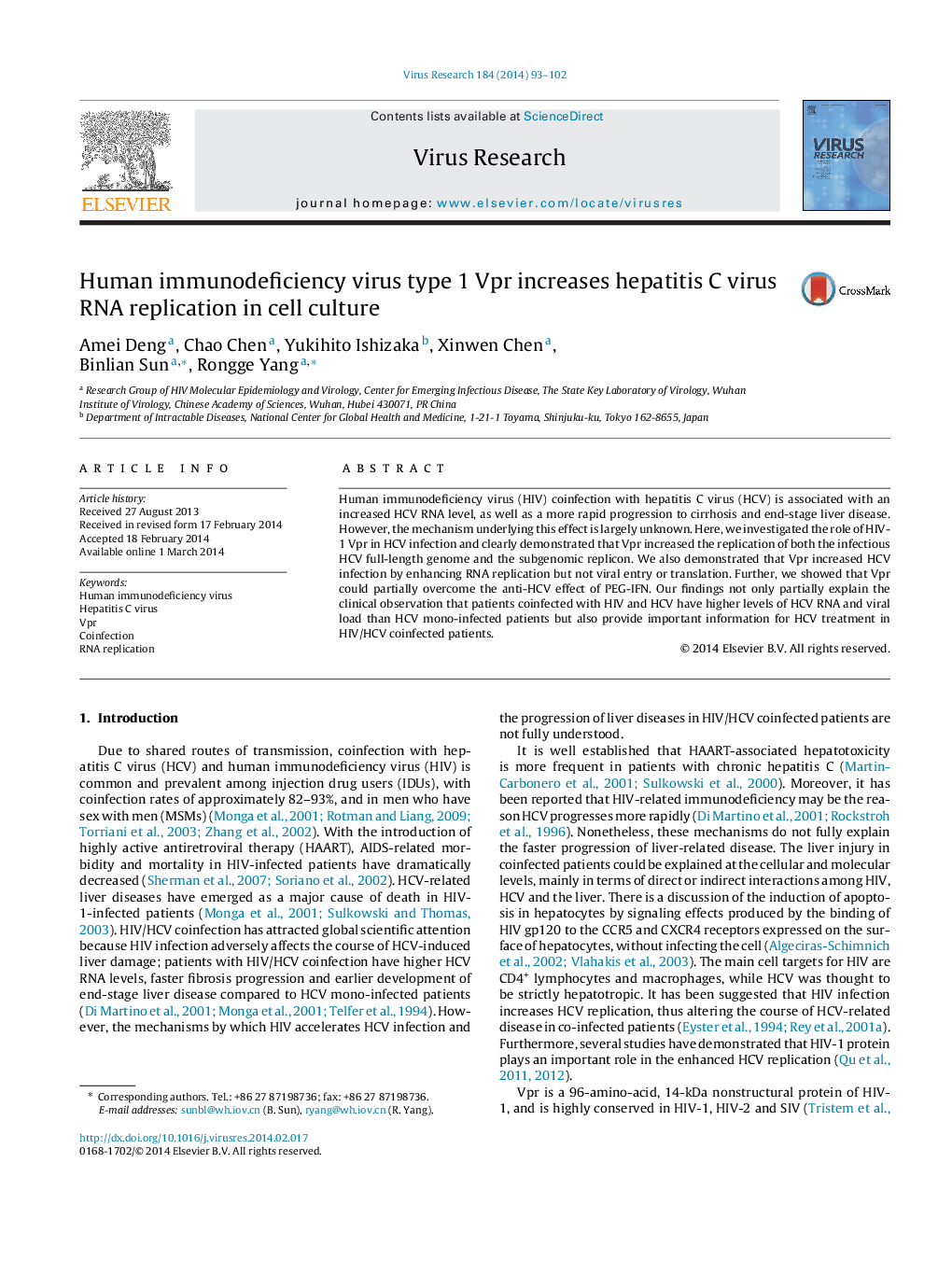| Article ID | Journal | Published Year | Pages | File Type |
|---|---|---|---|---|
| 6142415 | Virus Research | 2014 | 10 Pages |
Abstract
Human immunodeficiency virus (HIV) coinfection with hepatitis C virus (HCV) is associated with an increased HCV RNA level, as well as a more rapid progression to cirrhosis and end-stage liver disease. However, the mechanism underlying this effect is largely unknown. Here, we investigated the role of HIV-1 Vpr in HCV infection and clearly demonstrated that Vpr increased the replication of both the infectious HCV full-length genome and the subgenomic replicon. We also demonstrated that Vpr increased HCV infection by enhancing RNA replication but not viral entry or translation. Further, we showed that Vpr could partially overcome the anti-HCV effect of PEG-IFN. Our findings not only partially explain the clinical observation that patients coinfected with HIV and HCV have higher levels of HCV RNA and viral load than HCV mono-infected patients but also provide important information for HCV treatment in HIV/HCV coinfected patients.
Related Topics
Life Sciences
Immunology and Microbiology
Virology
Authors
Amei Deng, Chao Chen, Yukihito Ishizaka, Xinwen Chen, Binlian Sun, Rongge Yang,
